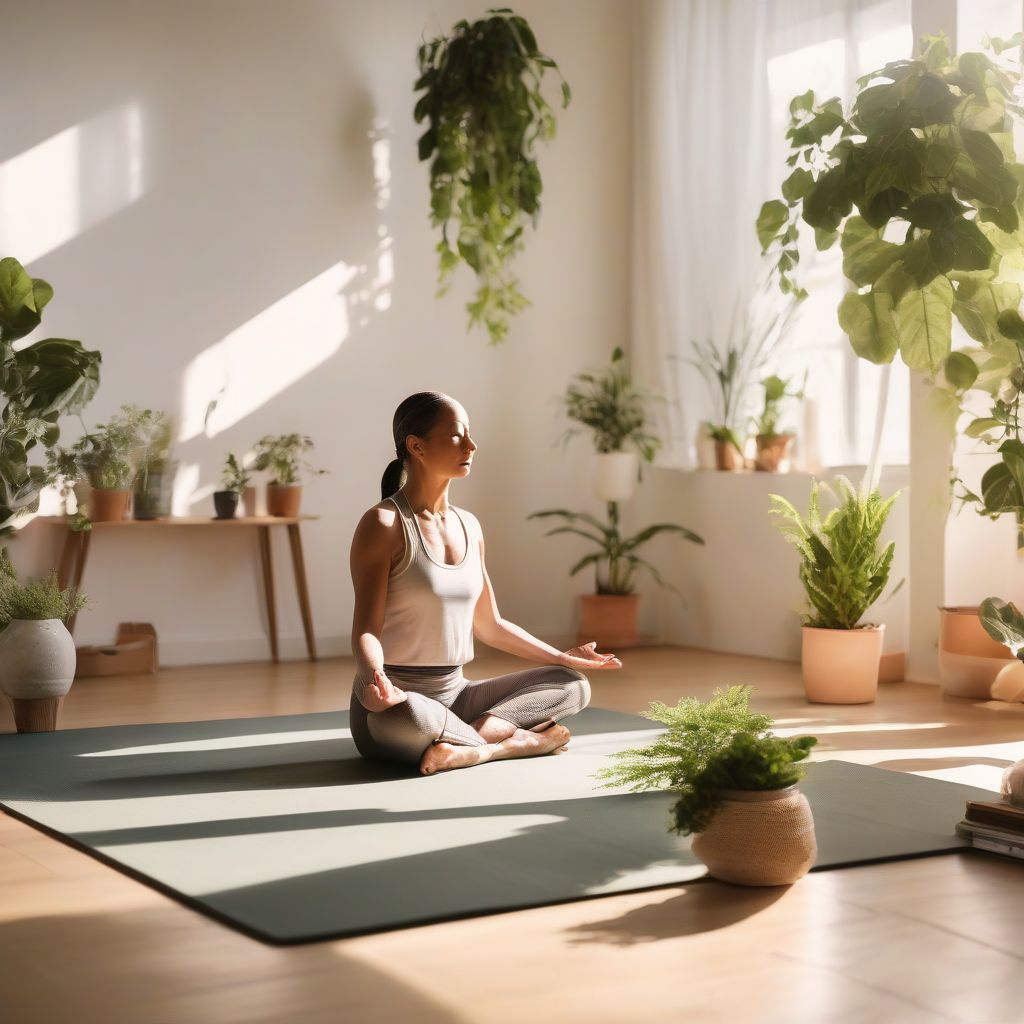Have you ever felt like you’re constantly running on a hamster wheel, juggling endless tasks and responsibilities, with little room to breathe? You’re not alone. In today’s fast-paced world, many of us crave more space – not just in our homes, but in our minds and lives. Creating space isn’t about magically adding more hours to the day; it’s about making mindful choices that allow us to prioritize what truly matters. This involves decluttering, setting boundaries, and cultivating a mindset of intentionality. As a certified nutritionist and meal prep coach, I’ve seen firsthand how mindful choices, especially regarding food, can ripple out to create positive change in all areas of life. Let’s explore how you can create more space and find more freedom through conscious decision-making.
Understanding Mindful Choices
Mindfulness is about being present in the moment, without judgment. When we apply this to our choices, we become more aware of the impact our decisions have on our well-being and our surroundings. Mindful choices aren’t about restriction; they’re about alignment. They are about asking yourself, “Does this choice serve me and my goals?” before acting. This can apply to everything from what you eat to how you spend your time and who you spend it with.
Decluttering Your Physical Space
A cluttered environment can lead to a cluttered mind. Physical clutter often represents unresolved emotional baggage or simply the accumulation of things we no longer need or use. Starting with small, manageable steps can make a big difference. Begin by decluttering a single drawer, a shelf, or a corner of a room. Ask yourself: Have I used this item in the past year? Does it bring me joy? If the answer is no, it might be time to let it go. Check out this helpful article on creating a calming bedroom with minimal decor for inspiration: how-to-create-a-calming-bedroom-with-minimal-decor.
Setting Boundaries and Saying No
Saying no can be challenging, especially for those who are naturally inclined to please others. However, setting boundaries is essential for protecting your time and energy. It’s about recognizing your limits and communicating them clearly and respectfully. Saying no to commitments that don’t align with your priorities creates space for the things that truly matter. Think of it as saying yes to yourself and your well-being. Learn more about sustainable minimalist habits to incorporate into your daily life here: sustainable-minimalist-habits-to-adopt-this-year.
Cultivating a Mindset of Intentionality
Intentionality is about living with purpose. It’s about making conscious decisions about how you spend your time, energy, and resources. Instead of reacting to external pressures, you proactively choose actions that align with your values and goals. This can involve setting daily intentions, planning your week ahead, and regularly reviewing your progress. Developing a clutter-free morning routine can set a positive tone for the entire day: how-to-create-a-clutter-free-morning-routine.
Mindful Choices in Nutrition and Meal Prep
As a nutritionist, I’ve witnessed the transformative power of mindful eating. It’s not about dieting; it’s about paying attention to your body’s hunger and fullness cues, savoring each bite, and choosing foods that nourish you both physically and mentally. Meal prepping can be a powerful tool for making mindful food choices. By planning your meals in advance, you reduce the likelihood of impulsive, unhealthy choices when you’re hungry and pressed for time.
The Impact of Mindful Choices on Stress Reduction
Stress is a common experience, but chronic stress can have detrimental effects on our physical and mental health. Mindful choices can play a significant role in stress reduction. By decluttering our physical space, setting boundaries, and cultivating a mindset of intentionality, we create a sense of calm and control amidst the chaos. This also extends to our eating habits. Mindful eating can reduce stress by promoting a greater awareness of our body’s internal signals, allowing us to respond to stress in healthier ways. Designing a functional minimalist living room can contribute to a more peaceful home environment: how-to-design-a-functional-minimalist-living-room.
Long-Term Benefits of Mindful Living
The benefits of mindful living extend far beyond a tidy home and a less cluttered schedule. It can lead to increased self-awareness, improved focus, enhanced creativity, and a greater sense of purpose. By making conscious choices that align with our values, we create a life that is more fulfilling and meaningful. Consider how minimalist living can positively impact your daily routines: the-impact-of-minimalist-living-on-daily-routines.
 Creating Space Through Mindful Choices
Creating Space Through Mindful Choices
Conclusion
Creating space in your life through mindful choices is a journey, not a destination. It’s about making small, consistent changes that add up to a big difference. By decluttering your environment, setting healthy boundaries, and embracing intentionality in your actions, you can create more room for what truly matters. Remember, mindfulness isn’t about perfection; it’s about progress. Start small, be patient with yourself, and enjoy the process of creating a life that is more spacious, fulfilling, and aligned with your authentic self. What small step can you take today to create more space in your life? Share your thoughts in the comments below.



